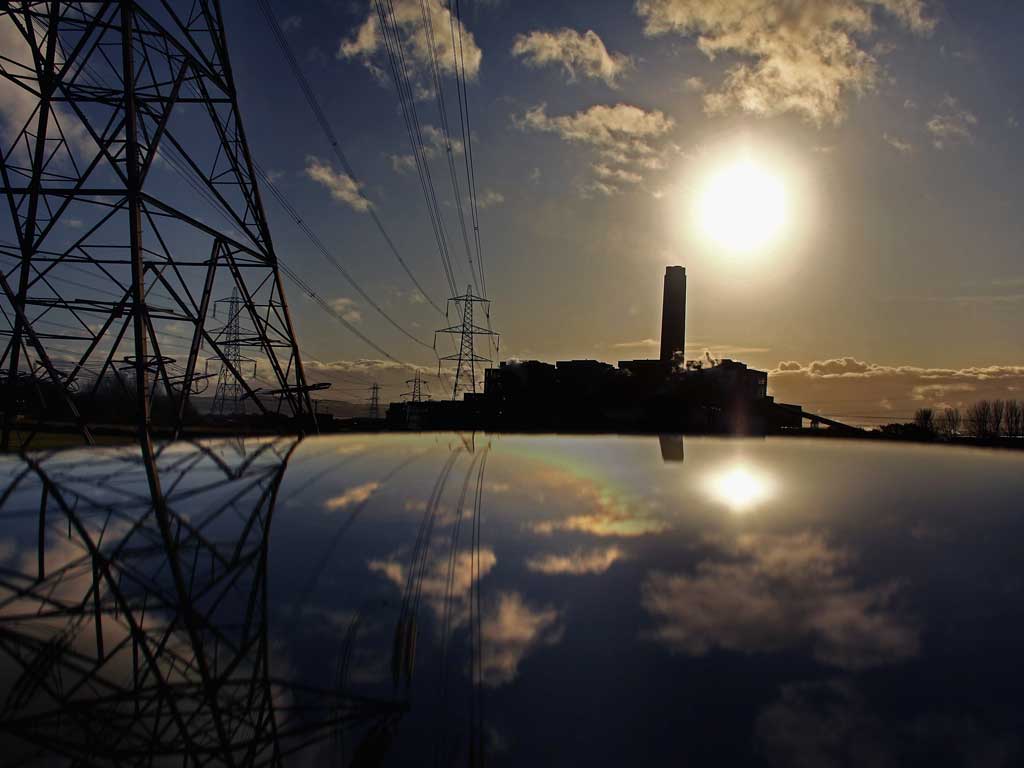Greens warn of a return to era of 'dirty coal'
Coal-fired power stations trialling 'carbon capture' technology could be exempt from regulations

Your support helps us to tell the story
From reproductive rights to climate change to Big Tech, The Independent is on the ground when the story is developing. Whether it's investigating the financials of Elon Musk's pro-Trump PAC or producing our latest documentary, 'The A Word', which shines a light on the American women fighting for reproductive rights, we know how important it is to parse out the facts from the messaging.
At such a critical moment in US history, we need reporters on the ground. Your donation allows us to keep sending journalists to speak to both sides of the story.
The Independent is trusted by Americans across the entire political spectrum. And unlike many other quality news outlets, we choose not to lock Americans out of our reporting and analysis with paywalls. We believe quality journalism should be available to everyone, paid for by those who can afford it.
Your support makes all the difference.A new generation of coal-fired power stations will be built without permanent curbs on emissions, say green groups, who warn that a "whopping loophole" risks a new age of pollution.
Ed Davey, the Energy Secretary, claimed last week that his reforms "will ensure we can keep the lights on, bills down and the air clean". His department boasted that the Draft Energy Bill will "provide a regulatory backstop to prevent construction of new coal plants which emit more than 450g/kWh".
But buried in the fine print was confirmation that new coal-fired power stations will in fact not be subject to the coalition's carbon cap, known as the Emissions Performance Standard (EPS), provided they trial a carbon capture and storage (CCS) system.
The Department of Energy and Climate Change this weekend admitted that if the largely untested and expensive CCS technology fails, the power station will go on polluting. "We will consider the circumstances at the time," a spokesman said.
Environmentalists seized on the revelation, claiming ministers had caved into the coal industry and allowed it to avoid limits on emissions that contribute to climate change. There are 14 coal-fired power stations currently in the UK. In November, North Ayrshire Council rejected plans for a new plant at Hunterston.
Joss Garman, a senior campaigner for Greenpeace, said ending the era of dirty coal had been a flagship pledge from both parties in the coalition. "But now the Lib Dem Energy Secretary, Ed Davey, seems to have slipped the coal industry a whopping loophole that could mean some of the most polluting power stations known to man could be built in the UK and exempted from pollution controls.
"David Cameron and Nick Clegg must step in and put right this mess of a policy to make sure we don't see the spectre of highly polluting coal plants like Kingsnorth return."
Under the EPS, no new power station can release more than 450g of CO2 per kWh until 2045, after which it is hoped the figure will come down. But official DECC documents show how some coal-fired plants will be able to avoid the cap. They state: "Provision is made... to except from the requirements of the EPS plants which form part of the UK's CCS commercialisation programme."
However, the idea of capturing the carbon in emissions from power plants is in its infancy and has yet to be proven on a commercial scale. In October Chris Huhne, the then Energy Secretary, cancelled a £1bn CCS project at Longannet in Scotland in a row over funding. It was the last scheme of its kind in the running for public money. The UK's first CCS pilot, a small £20m project in Yorkshire, opened just last November.
Carbon capture and storage works by burying the carbon in the ground. According to the International Energy Agency, it could provide a fifth of the carbon cuts needed by 2050.
But it is expensive, and while the US, Canada and Australia have significant plants, there is none of significance in Europe. Unless or until there is a breakthrough, which brings the cost of CCS at least down to the value placed on carbon, it is unlikely to play a significant part in Britain.
The DECC said it remained "confident CCS will work" and "in the long run could remove a significant amount of the UK's CO2 emissions created by energy generation". The spokesman denied there was a loophole, adding: "It is possible a very limited number of projects could be built as part of the CCS commercialisation programme that will not be subject to the EPS. This exemption will allow us the flexibility to select the best projects to take us to a new CCS industry as quickly as possible and at best value. The sooner we get CCS proven at the large scale, the sooner we can use it to reduce emissions across the power sector."
Join our commenting forum
Join thought-provoking conversations, follow other Independent readers and see their replies
Comments